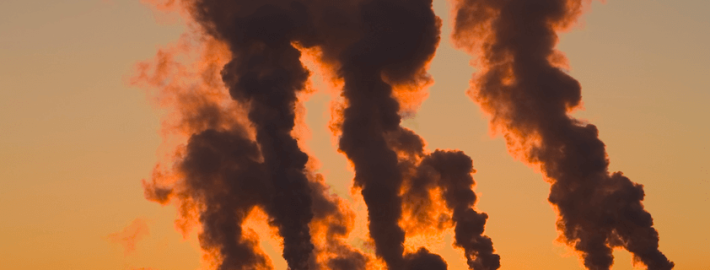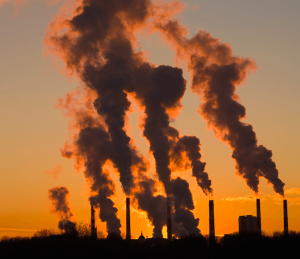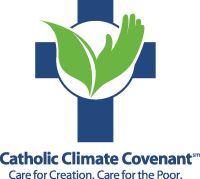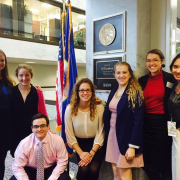Bishops on Carbon Pollution: A Model for Faith-Based Advocacy
BY JAMES HUG S.J | May 31, 2014
Editor’s Note: As predicted by Fr. Hug, on June 2, 2014, President Obama announced Environmental Protection Agency regulations to cut carbon pollution from the nation’s power plants 30 percent from 2005 levels by 2030.
Care about climate change and its impacts on all of us? How could you not?! Take a moment to read Miami Archbishop Thomas Wenski’s May 29th letter to EPA administrator Gina McCarthy on behalf of the U.S. Conference of Catholic Bishops. It is a model for faith-based advocacy letters; would that all were so well done.
And it is timely, coming out just in time to greet President Obama’s June 2nd directive to the EPA for the first national standards on carbon pollution from existing fossil-fuel-fired power plants—our biggest source of global warming pollution. These standards are sure to come under intense attack from those whose short-term economic interests will be affected negatively.
What does the letter say and why is it so good?
From the very first paragraph it emphasizes that the standards to reduce carbon pollution from existing power plants must be strong so that they protect the most vulnerable of all ages – the preferential option for the poor and vulnerable that is the hallmark of Catholic social tradition.
He also situates the issue immediately in its most important theological context: Creation is a profound gift from God to be cared for in gratitude and used for the benefit of all. The issues of carbon pollution and climate change are not just scientific or technical issues; they are deeply religious issues about which the Church can and must speak out.
He appeals to scientific evidence that can be verified: that these power plants are the “largest stationary source of carbon emissions in the U.S.” And he highlights the social injustice of the environmental racism and classism in the location of the plants, again pointing out the harmful impact on the most vulnerable. He recognizes that new regulations will have short-term negative effects on some workers and urges support for them as well as a just distribution of the costs to be incurred.
He appeals to Scripture (Matthew 25 – the Last Judgment), to the principles of Catholic Social Teaching (human life and dignity, the common good, community participation, subsidiarity), to a previous teaching document (Global Climate Change: A Plea for Dialogue, Prudence and the Common Good), and to the most popular world leader today, Pope Francis. Pick your favorite authoritative source!
He points to the Church’s extensive empirical experience on the ground: describing the sufferings encountered in the communities where Catholic Relief Services works around the world among the most needy. Catholic Charities institutions too are being overwhelmed by the human suffering and need generated by more violent storms, wildfires, floods, droughts and more.
Recognizing the global extent of the problems the human community is facing, Archbishop Wenski calls on the U.S. government to “exercise leadership for a globally negotiated climate change agreement.” Charity is not enough. Global political solidarity in structure and policy are needed. The U.S. has for too long been an obstacle to strong international climate agreements, preferring instead to protect shortsighted corporate interests.
Finally he indicates the readiness of the Bishops’ Conference to work with the Administration and Congress “to ensure that measures necessary to address climate change both care for creation and protect ‘the least of these.’”
Why not add your voice in support of the U.S. Bishops on this crucial set of issues? Drop a note to EPA administrator Gina McCarthy ([email protected]) expressing your strong support for meaningful, effective and enforceable national standards.
James E. Hug, S.J., has a long history working in social ethics and social justice advocacy in the Catholic community. He served 24 years as the President of the Center of Concern, a Washington, DC based social justice institute rooted in Catholic social tradition, working for greater economic, social, and ecological justice globally. He holds a doctoral degree in Christian ethics from the University of Chicago and a master’s degree in Christian spirituality from St. Louis University.
Fr. Hug’s research has focused on issues of faith and economic justice and he has lectured and directed workshops throughout the U.S. and in Europe, Asia, Africa, and Australia. Currently he serves as sacramental minister for the Adrian Dominican Sisters and writes on issues of spirituality for social transformation in these difficult times. His blog, “Truth that does Justice,” can be found on the website for the Dominican Center: Spirituality for Mission, www.dominicancenter.org.
Past publications have included Catholic Social Teaching: Our Best Kept Secret, Social Revelation: Profound Challenge for Christian Spirituality, and Tracing the Spirit: Communities, Social Action, and Theological Reflection. Jim has also written chapters for Globalization and Catholic Social Thought: Present Crisis, Future Hope and The Pastoral Circle Revisited: A Critical Quest for Truth and Transformation.
Fr. Hug’s research has focused on issues of faith and economic justice and her has lectured and directed workshops throughout the U.S. and in Europe, Asia, Africa and Australia. He was the editor of the Center of Concern’s “Catholic Social Teaching: Our Best Kept Secret, author of Social Revelation: Profound Challenge for Christian Spirituality,” and the editor of “Tracing the Spirit: Communities, Social Action, and Theological Reflection.” Jim has also written chapters for “Globalization and Catholic Social Thought: Present Crisis, Future Hope” and “The Pastoral Circle Revisited: A Critical Quest for Truth and Transformation.”












Trackbacks & Pingbacks
[…] Hug, James. “Bishops on Carbon Pollution: A Model for Faith-Based Advocacy.” Ignatian Solidarity Network. May 31, 2014. https://ignatiansolidarity.net/blog/2014/05/31/bishops-carbon-pollution/. […]
Leave a Reply
Want to join the discussion?Feel free to contribute!